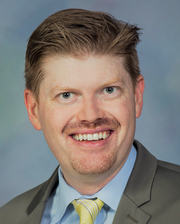
Mental Health Following A Stroke
Our brain is in charge of most things in our body, including our thoughts, feelings, and behaviors. When someone experiences a stroke, it can affect parts of the brain that control our mood and behavior so that they no longer work as they used to before the stroke. That is why those who have had a stroke often struggle with common mental health problems, such as anxiety, depression, and social isolation, during and after their recovery. In general, we call these concerns Post-Stroke Psychosocial Stress.
Post-stroke, when patients do not get treatment for post-stroke psychosocial stress, it can take longer for them to feel better during their recovery. This can have a negative effect on survivors’ quality of life as well, which in turn can worsen the post-stroke psychosocial stress. Add to this the fact that when these patients discharge directly home from the hospital without additional supportive services they are only able to receive care from family members, spouses, and loved ones, whom we call informal caregivers. Because informal caregivers usually don’t have any medical training, they can feel overwhelmed and develop caregiver burden and psychosocial stress. Increased caregiver burden can affect the informal caregiver’s ability to help those who have had a stroke through their recovery. This means that both the patient and their informal caregiver’s psychosocial stress can increase, which can also make recovery more difficult.
Fortunately, there are helpful therapies and supports for those who have had a stroke and their informal caregivers. Receiving these kinds of supports can improve the post-stroke recovery process and quality of care for their loved ones by reducing post-stroke psychosocial stress.
The Mental Health Program focuses on developing behavioral interventions, supports, and therapies for this crucial post-stroke period. We are interested in learning about how the interventions can improve post-stroke psychosocial stress so that we can improve the education and support services for those who have had a stroke and their informal caregivers in our communities.

Post-Stroke Depression Study
If you have experienced a recent stroke and are struggling with depression, our ongoing research study may be able to assist you. If you qualify you can expect a no cost MRI and PET scan, a free mental health evaluation, and a referral to a mental health provider.
To learn more contact Caitlin Farrington, Clinical Research Coordinator
(713) 500-8207
-
Stroke Survivors & Informal Caregivers
For Stroke Survivors
Resources
- Life After Stroke, American Stroke Association
- Canadian Partnership for Stroke Recovery
- Stroke Survivors Empowering Each Other
For Informal Caregivers
Resources
- Caregiver Guide to Stroke, American Heart Association
- How Should I Communicate as a Caregiver, American Heart Association
- What Is Caregiver Burnout?, American Heart Association
- Intimacy After Stroke, American Stroke Foundation
- Coping through COVID-19 (PDF)
Resources for Emotional Health
- Emotional Effects of Stroke, American Stroke Association
- Support Network, American Stroke Association
- Depression Basics, National Institute of Mental Health
- Mental Health Resources, Mental Health America of Greater Houston
Interested in sharing your story? We are looking for written pieces from people in the community related to their experiences with stroke caregiving, and/or mental health.
If you have a story you’d like to share, whether you’re a professional or not, feel free to send it over to Jordan Broussard at jordan.b[email protected] and/or Amy Quinn at [email protected].
The story will be shared for others to view on the stroke program’s mental health website. Thank you!
-
Volunteers Needed
Looking for Volunteers for "Improving Adult Protective Services Client Outcomes: A Stepped-care Social and Mental Health Engagement Program" Study.
The purpose of this research study is to determine if weekly social engagement phone calls benefit older adults receiving services from Adult Protected Services. We are interested in learning whether the impact of intergenerational social engagement between university and college students and older adults receiving services from Adult Protective Services is beneficial to the older adult and what benefits students may receive.
We are looking for students who are interested in making a difference in a life of an older adult. We need you to be a phone-based social connection. The purpose of this 8-week program is to decrease older adult social isolation, loneliness, and related mental health distress.
Student expectations:
Students will review a short video on the calls and empathy-based communication. They will then make a weekly phone call for 8 weeks, lasting up to an hour, which includes brief data collection.
At the end of the program, participating students will have the opportunity to contribute to scholarly publications.
The minimal potential risks include:
Fatigue and negative emotions
Student participant eligibility:
- A college student
- Commits to making 8 phone calls
- Completes the required 1-hour training
- Wants to make a difference
Benefits of this program:
- Increased social connection
- Increased knowledge
- Increased intergenerational
- experiences
-
Local Support Groups
Local Support Groups
Resources
- Stroke Support Group Finder, American Stroke Association
- Memorial Hermann Stroke Survivor Group Listing:
-
In-Person Support Groups
Patients, family and other caregivers are invited to join us and other survivors as we share, discuss and learn about living life after Stroke.
Memorial Hermann Stroke Support Group at Texas Medical Center
The group meets the third Wednesday of every month at 2:30 p.m. at Memorial Hermann-Texas Medical Center hospital in the 7 Jones Conference Room on the 7th Floor of the Jones Pavilion[Street Map]. Valet parking is complimentary at the main Cullen valet.
Call (713) 222-CARE to register or for more information.
Memorial Hermann Stroke Support Group at The Woodlands Medical Center
Memorial Hermann The Woodlands Medical Center Stroke Support Group meets the first Wednesday of each month from 6:00 p.m. to 7:00 p.m. The group meets in the Conference Center.[Street Map]
Call (713) 222-CARE to register or for more information.
Memorial Hermann Stroke Support Group at Northeast
The Memorial Hermann Stroke Support Group at Northeast the 4th Wednesday of every even month at 12:30 p.m. in classroom B.[Street Map]
Call(713) 222-CAREto register or for more information.
Memorial Hermann Stroke Support Group at Greater Heights
The Memorial Hermann Stroke Support Group at Greater Heights meets the third Thursday of every month at 3:00 p.m. in the South Tower Classroom.[Street Map]
Call (713) 222-CARE to register or for more information.
Memorial Hermann Stroke Support Group at Memorial City
The Memorial Hermann Stroke Support Group at Memorial City meets at 10:30 a.m. every Tuesday. The group meets at The Gate at the Connection Center, 13194 Memorial Drive.[Street Map]
Call (713) 222-CARE to register or for more information.
Memorial Hermann Stroke Support Group of Katy
The Memorial Hermann Stroke Support Group of Katy meets from 6:00 p.m. to 7 p.m. on the third Thursday of every month in the Tiger B Conference Room (West Tower, 1st floor) of the hospital. The Stroke Support Group is a program of Memorial Hermann Katy Hospital and Memorial Hermann Rehabilitation Hospital?Katy.[Street Map]
Call (713) 222-CARE to register or for more information.
Memorial Hermann Southwest Hospital Stroke Support Group
The Memorial Hermann Southwest Hospital Stroke Support Group meets from 2:00 p.m. to 3:00 p.m. on the third Thursday of every month at Memorial Hermann Southwest Hospital, Pavilion Classroom.[Street Map]
Call (713) 222-CARE to register or for more information.
Memorial Hermann Southeast Hospital Stroke Support Group
The Memorial Hermann Southeast Hospital Stroke Support Group meets every even month in the 1st Floor CES Conference Room.[Street Map]
Call (713) 222-CARE to register or for more information.
-
- Mental Health Awareness Dates
-
The Jung Center's Mind Body Spirit Institute
The Jung Center's Mind Body Spirit Institute Resources
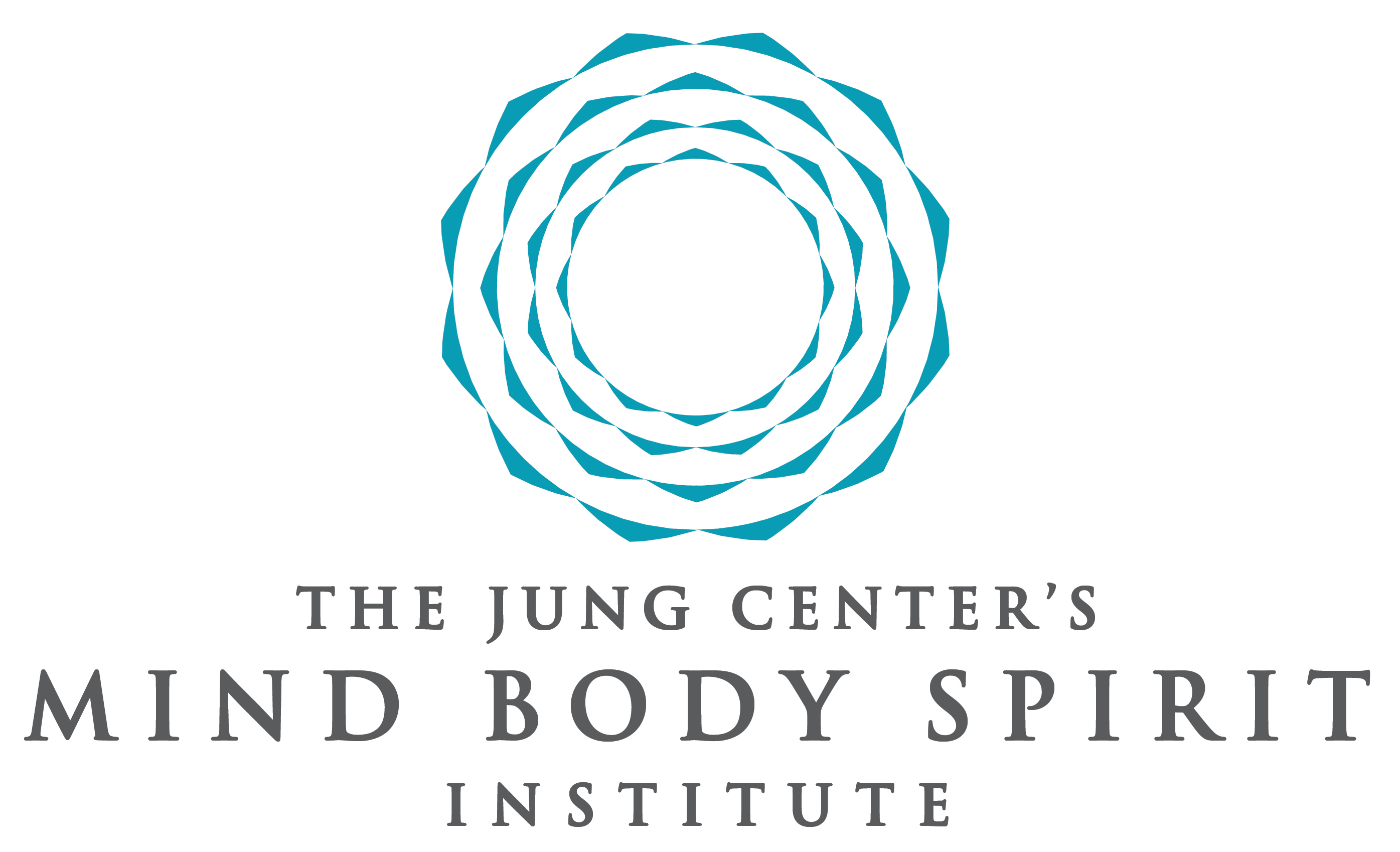
Weekly Meditation Program
The Jung Center's Mind Body Spirit Institute offers free weekly meditation. This online and live streaming program can be taken from home, or anywhere with an internet connection. For more information and registration details, please visit the The Jung Center's Mind Body Spirit Institute
- The Power of Community
- Coping With Grief
Mindful Hand Washing
"Every time we wash our hands, we have a perfect opportunity to bring our attention to the present and let go of anxiety. Alejandro Chaoul, PhD, founding director of The Jung Center's Mind Body Spirit Institute, teaches this easy practice." Please check out this mindful handwashing video provided by The Jung Center of Houston.
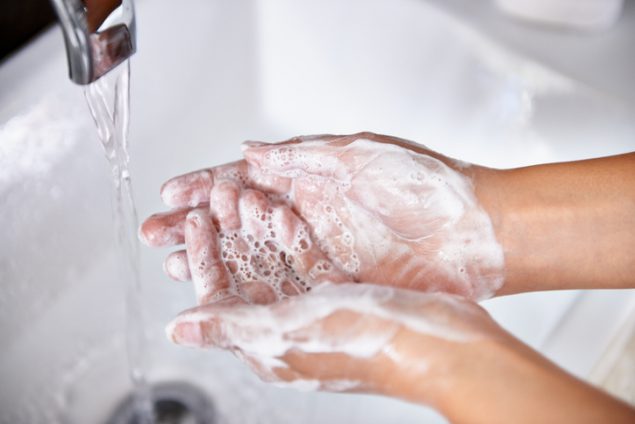
The S.T.O.P. Formula
During the day, if you find your mind is racing, you are having trouble focusing, or you are feeling overwhelmed, angry, agitated, worried, or critical (of self and others), use the STOP Formula - Susan Bauer-Wu, PhD, RN, FAAN
S – Stop, pause
T – Take a few slow, deep breaths and tune in
O – Open and Observe – notice what is on your mind and how you feel
P – Proceed with awareness, kindness, and wise action (or inaction)
Dr. Alejandro Chaoul shares a few mindful "pills" to do between interpreting encounters, or stressful moments that can be viewed here.
Our brain is in charge of most things in our body, including our thoughts, feelings, and behaviors. When someone experiences a stroke, it can affect parts of the brain that control our mood and behavior so that they no longer work as they used to before the stroke. That is why those who have had a stroke often struggle with common mental health problems, such as anxiety, depression, and social isolation, during and after their recovery. In general, we call these concerns Post-Stroke Psychosocial Stress.
Stroke Awareness: Prevention and Mental Health
"Social Situations for the Elderly"
World Stroke Day Awareness
Share this video with others to encourage Stroke Awareness!
Mental Health After Stroke
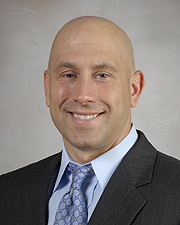
McGovern Medical School at UTHealth Houston
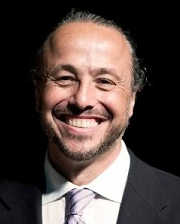
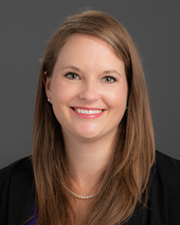
Department of Psychiatry and Behavioral Sciences at UTHealth Houston

-
Jennifer Beauchamp, PhD, RN
- Beauchamp, J. E. S., Sharrief, A., Chaoul, A., Casameni Montiel, T., Love, M. F., Cron, S., Prossin, A., Selvaraj, S., Dishman, D., & Savitz, S. I. (2023). Feasibility of a meditation intervention for stroke survivors and informal caregivers: a randomized controlled trial. BMC psychology, 11(1), 9. https://doi.org/10.1186/s40359-022-01031-z
- Denny, M. C., Ancer Leal, A., Montiel, T. C., Wynne, K. J., Edquilang, G., Vu, K. Y. T., Vahidy, F., Savitz, S. I., Beauchamp, J. E., & Sharrief, A. (2023). An Intervention Mapping Approach to Developing a Stroke Literacy Video for Recent Stroke Survivors: Development and Usability Study. JMIR formative research, 7, e31903. https://doi.org/10.2196/31903
- Fadipe, M. F., Aggarwal, S., Johnson, C., & Beauchamp, J. E. S. (2023). Effectiveness of online cognitive behavioural therapy on quality of life in adults with depression: A systematic review. Journal of psychiatric and mental health nursing, 10.1111/jpm.12924. Advance online publication. https://doi.org/10.1111/jpm.12924
- Varughese, T., Casameni Montiel, T., Engebretson, J., Savitz, S. I., Sharrief, A., & Beauchamp, J. E. S. (2022). A Person-Centered Approach Understanding Stroke Survivor and Family Caregiver Emotional Health. The Journal of neuroscience nursing: journal of the American Association of Neuroscience Nurses, 54(2), 68–73. https://doi.org/10.1097/JNN.0000000000000640
- Beauchamp, J. E. S., Villarreal, Y., Ancer Leal, A., Savitz, S. I., & Sharrief, A. (2022). Reflections on Obstacles to Stroke Awareness in Spanish-Speaking Hispanic Populations: Lost in Translation. The Journal of Neuroscience Nursing: Journal of the American Association of Neuroscience Nurses, 54(6), 228-230. DOI: 10.1097/JNN.0000000000000674.
- Castro, A., Leal, A. A., Montiel, T. C., Sharrief, A., Denny, M. C., & Beauchamp, J. E. S. (2022). RAPIDO: Promoting stroke awareness among Spanish speakers. Nursing, 52(1), 46–50. https://doi.org/10.1097/01.NURSE.0000803488.93481.a2
- Daundasekara, S. S., Beauchamp, J. E. S., & Hernandez, D. C. (2021). Parenting stress mediates the longitudinal effect of maternal depression on child anxiety/depressive symptoms. Journal of Affective Disorders, 295, 33–39. https://doi.org/10.1016/j.jad.2021.08.002
- Naqvi, I. A., Montiel, T. C., Bittar, Y., Hunter, N., Okpala, M., Johnson, C., Weiner, M. G., Savitz, S., Sharrief, A., & Beauchamp, J. E. S. (2021). Internet Access and Usage Among Stroke Survivors and Their Informal Caregivers: Cross-sectional Study. JMIR Formative Research, 5(3), e25123. https://doi.org/10.2196/25123
- Achilike, S., Beauchamp, J. E. S., Cron, S. G., Okpala, M., Payen, S. S., Baldridge, L., Okpala, N., Montiel, T. C., Varughese, T., Love, M., Fagundes, C., Savitz, S., & Sharrief, A. (2020). Caregiver Burden and Associated Factors Among Informal Caregivers of Stroke Survivors. The Journal of Neuroscience Nursing: Journal of the American Association of Neuroscience Nurses, 52(6), 277–283. https://doi.org/10.1097/JNN.0000000000000552
- Daundasekara, S. S., Schuler, B. R., Beauchamp, J. E. S., & Hernandez, D. C. (2021). The mediating effect of parenting stress and couple relationship quality on the association between material hardship trajectories and maternal mental health status. Journal of Affective Disorders, 290, 31–39. https://doi.org/10.1016/j.jad.2021.04.058
- Love, M. F., Wood, G. L., Wardell, D. W., & Beauchamp, J. E. S. (2021). Resilience and associated psychological, social/cultural, behavioural, and biological factors in patients with cardiovascular disease: A systematic review. European Journal of Cardiovascular Nursing: Journal of the Working Group on Cardiovascular Nursing of the European Society of Cardiology, 20(6), 604–617. https://doi.org/10.1093/eurjcn/zvaa008
- Beauchamp, J.E.S., Casameni Montiel, T., Cai, C., Tallavajhula, S., Hinojosa, E., Okpala, M.N., Vahidy, F. S., Savitz, S.I., & Sharrief, A.Z. (2020). A Retrospective Study to Identify Novel Factors Associated with Post-stroke Anxiety. Journal of Stroke and Cerebrovascular Diseases. DOI: 10.1016/j.jstrokecerebrovasdis.2019.104582
- Fournier, L. E., Beauchamp, J. E. S., Zhang, X., Bonojo, E., Love, M., Cooksey, G., Hinojosa, E., Okpala, M. N., Savitz, S. I., & Sharrief, A. Z. (2020). Assessment of the Progression of Poststroke Depression in Ischemic Stroke Patients Using the Patient Health Questionnaire-9. Journal of Stroke and Cerebrovascular Diseases: The Official Journal of National Stroke Association, 29(4), 104561. https://doi.org/10.1016/j.jstrokecerebrovasdis.2019.104561
- Love, M.F., Sharrief, A., LoBiondo-Wood, G., Cron, S.G., & Beauchamp, E.S. (2020). The Effects of Meditation, Race, and Anxiety on Stroke Survivor Resilience. Journal of Neuroscience Nursing. DOI: 10.1097/JNN.0000000000000509
- Reddy, S. T., Satani, N., Beauchamp, J. E. S., Selvaraj, S., Rajan, S. S., Rahbar, M. H., Tahanan, A., Kim, S., Holder, T., Jiang, X., Chen, L., Kamal, H., Indupuru, H. K. R., Wu, T.-C., & Savitz, S. I. (2021). A meta-analysis of the global impact of the COVID-19 pandemic on stroke care & the Houston Experience. Annals of Clinical and Translational Neurology, 8(4), 929–937. https://doi.org/10.1002/acn3.51322
- Rhoades, B. D., Beauchamp, J. E. S., Engebretson, J. C., & Wardell, D. W. (2020). Influencing factors on left ventricular assist device adaptation: A systematic review. Heart & Lung: The Journal of Critical Care, 49(5), 501–511. https://doi.org/10.1016/j.hrtlng.2020.01.015
- Streck, B. P., Wardell, D. W., LoBiondo-Wood, G., & Beauchamp, J. E. S. (2020). Interdependence of physical and psychological morbidity among patients with cancer and family caregivers: Review of the literature. Psycho-Oncology, 29(6), 974–989. https://doi.org/10.1002/pon.5382
Abstracts
- Ancer Leal, A., Castro, A., Kadiyala, A., Casameni Montiel, T., Beauchamp, J., Sharrief, A., & Denny, C. (August 2020). Video-based Stroke Education: Stroke Messaging for Spanish-speakers. Virtual 4th Annual International Neuroscience Nursing Research Symposium (INNRS). First place for best poster.
-
Alejandro Chaoul, PhD
- Beauchamp, J. E. S., Sharrief, A., Chaoul, A., Casameni Montiel, T., Love, M. F., Cron, S., Prossin, A., Selvaraj, S., Dishman, D., & Savitz, S. I. (2023). Feasibility of a meditation intervention for stroke survivors and informal caregivers: a randomized controlled trial. BMC psychology, 11(1), 9. https://doi.org/10.1186/s40359-022-01031-z
- Lopez, G., Chaoul, A., Warneke, C. L., Christie, A. J., Powers-James, C., Liu, W., Narayanan, S., Delgado-Guay, M., Li, Y., Bruera, E., & Cohen, L. (2023). Self-administered Meditation Application Intervention for Cancer Patients With Psychosocial Distress: A Pilot Study. Integrative cancer therapies, 22, 15347354221148710. https://doi.org/10.1177/15347354221148710
- Ratcliff, C. G., Zepeda, S. G., Hall, M. H., Tullos, E. A., Fowler, S., Chaoul, A., Spelman, A., Arun, B., & Cohen, L. (2021). Patient characteristics associated with sleep disturbance in breast cancer survivors. Supportive care in cancer : official journal of the Multinational Association of Supportive Care in Cancer, 29(5), 2601–2611. https://doi.org/10.1007/s00520-020-05777-3
- Hunter, J. J., Maunder, R. G., Sui, D., Esplen, M. J., Chaoul, A., Fisch, M. J., Bassett, R. L., Harden-Harrison, M. M., Lagrone, L., Wong, L., Baez-Diaz, L., & Cohen, L. (2020). A randomized trial of nurse-administered behavioral interventions to manage anticipatory nausea and vomiting in chemotherapy. Cancer medicine, 9(5), 1733–1740. https://doi.org/10.1002/cam4.2863
- Sinclair, K. L., Kiser, E., Ratcliff, C. G., Chaoul, A., Hall, M. H., Rinpoche, T. W., & Cohen, L. (2022). Sleep moderates the effects of Tibetan yoga for women with breast cancer undergoing chemotherapy. Supportive Care in Cancer: Official Journal of the Multinational Association of Supportive Care in Cancer. https://doi.org/10.1007/s00520-022-06861-6
- Mama, S. K., Bhuiyan, N., Chaoul, A., Cohen, L., Fagundes, C. P., Hoover, D. S., Strong, L. L., Li, Y., Nguyen, N. T., & McNeill, L. H. (2020). Feasibility and acceptability of a faith-based mind-body intervention among African American adults. Translational Behavioral Medicine, 10(4), 928–937. https://doi.org/10.1093/tbm/iby114
- Love, M. F., Sharrief, A., Chaoul, A., Savitz, S., & Beauchamp, J. E. S. (2019). Mind-Body Interventions, Psychological Stressors, and Quality of Life in Stroke Survivors. Stroke, 50(2), 434-440. DOI: 10.1161/STROKEAHA.118.021150.
-
Christopher Fagundes, PhD
- Chen, M. A., Suchting, R., Thayer, J. F., & Fagundes, C. P. (2023). Resilience to stress across the lifespan: Childhood maltreatment, heart rate variability, and bereavement. Psychology and aging, 38(3), 247–262. https://doi.org/10.1037/pag0000738
- Paoletti, J., Chen, M. A., Wu-Chung, E. L., Brown, R. L., LeRoy, A. S., Murdock, K. W., Heijnen, C. J., & Fagundes, C. P. (2023). Employment and family income in psychological and immune outcomes during bereavement. Psychoneuroendocrinology, 150, 106024. https://doi.org/10.1016/j.psyneuen.2023.106024
- Shahane, A. D., Brown, R. L., Denny, B. T., & Fagundes, C. P. (2023). Lexical markers of cognitive reappraisal, bereavement, and proinflammatory cytokine production. Health psychology: official journal of the Division of Health Psychology, American Psychological Association, 42(1), 24–32. https://doi.org/10.1037/hea0001207
- Ullah, M. A., Chatterjee, S., Fagundes, C. P., Lam, C., Nahum-Shani, I., Rehg, J. M., Wetter, D. W., & Kumar, S. (2022). mRisk: Continuous Risk Estimation for Smoking Lapse from Noisy Sensor Data with Incomplete and Positive-Only Labels. Proceedings of the ACM on interactive, mobile, wearable and ubiquitous technologies, 6(3), 143. https://doi.org/10.1145/3550308
- Brown, R. L., Chen, M. A., Paoletti, J., Dicker, E. E., Wu-Chung, E. L., LeRoy, A. S., Majd, M., Suchting, R., Thayer, J. F., & Fagundes, C. P. (2022). Emotion Regulation, Parasympathetic Function, and Psychological Well-Being. Frontiers in psychology, 13, 879166. https://doi.org/10.3389/fpsyg.2022.879166
- Paoletti, J., Derrick, J. L., Fagundes, C. P., & Leonard, K. E. (2022). The Effects of Strain-Based Work-Parenting Conflict on Dual Income Couples' Energy. International journal of environmental research and public health, 19(15), 9125. https://doi.org/10.3390/ijerph19159125
- Fagundes, C. P., Wu-Chung, E. L., & Christian, L. M. (2022). Special Issue: Social Determinants of Health: What we still need to know. Psychoneuroendocrinology, 140, 105713. DOI: 10.1016/j.psyneuen.2022.105713.
- Brown, R. L., LeRoy, A. S., Chen, M. A., Suchting, R., Jaremka, L. M., Liu, J., Heijnen, C., & Fagundes, C. P. (2022). Grief Symptoms Promote Inflammation During Acute Stress Among Bereaved Spouses. Psychological Science, 33(6), 859–873. DOI: 10.1177/09567976211059502.
- Wu-Chung, E. L., Leal, S. L., Denny, B. T., Cheng, S. L., & Fagundes, C. P. (2022). Spousal caregiving, widowhood, and cognition: A systematic review and a biopsychosocial framework for understanding the relationship between interpersonal losses and dementia risk in older adulthood. Neuroscience and Biobehavioral Reviews, 134, 104487. DOI: 10.1016/j.neubiorev.2021.12.010.
- Madison, A. A., Andridge, R., Shrout, M. R., Renna, M. E., Bennett, J. M., Jaremka, L. M., Fagundes, C. P., Belury, M. A., Malarkey, W. B., & Kiecolt-Glaser, J. K. (2022). Frequent Interpersonal Stress and Inflammatory Reactivity Predict Depressive-Symptom Increases: Two Tests of the Social-Signal-Transduction Theory of Depression. Psychological Science, 33(1), 152–164. DOI: 10.1177/09567976211031225.
- Chen, M. A., Brown, R. L., Chen, J. Y., de Dios, M. A., Green, C. E., Heijnen, C. J., & Fagundes, C. P. (2022). Childhood maltreatment, subjective social status, and health disparities in bereavement. Psychoneuroendocrinology, 135, 105595. DOI: 10.1016/j.psyneuen.2021.105595.
- Brown, R. L., Fagundes, C. P., Thayer, J. F., & Christian, L. M. (2021). Longitudinal changes in HRV across pregnancy and postpartum: Effect of negative partner relationship qualities. Psychoneuroendocrinology, 129, 105216. https://doi.org/10.1016/j.psyneuen.2021.105216
- Wu, E. L., LeRoy, A. S., Heijnen, C. J., & Fagundes, C. P. (2021). Inflammation and future depressive symptoms among recently bereaved spouses. Psychoneuroendocrinology, 128, 105206. https://doi.org/10.1016/j.psyneuen.2021.105206
- Brown, R. L., Shahane, A. D., Chen, M. A., & Fagundes, C. P. (2020). Cognitive reappraisal and nasal cytokine production following experimental rhinovirus infection. Brain, Behavior, & Immunity - Health, 1. https://doi.org/10.1016/j.bbih.2019.100012
- Fagundes, C. P., & Wu, E. L. (2020). Matters of the heart: Grief, morbidity, and mortality. Current Directions in Psychological Science, 29(3), 235–241. https://doi.org/10.1177/0963721420917698
- Seiler, A., Sood, A. K., Jenewein, J., & Fagundes, C. P. (2020). Can stress promote the pathophysiology of brain metastases? A critical review of biobehavioral mechanisms. Brain, Behavior, and Immunity, 87, 860–880. https://doi.org/10.1016/j.bbi.2019.12.013
- Shahane, A. D., LeRoy, A. S., Denny, B. T., & Fagundes, C. P. (2020). Connecting cognition, cardiology, and chromosomes: Cognitive reappraisal impacts the relationship between heart rate variability and telomere length in CD8+CD28- cells. Psychoneuroendocrinology, 112, 104517. https://doi.org/10.1016/j.psyneuen.2019.104517
- Garcini, L. M., Brown, R. L., Chen, M. A., Saucedo, L., Fite, A. M., Ye, P., Ziauddin, K., & Fagundes, C. P. (2021). Bereavement among widowed Latinos in the United States: A systematic review of methodology and findings. Death Studies, 45(5), 342–353. DOI: 10.1080/07481187.2019.1648328.
- Shrout, M. R., Renna, M. E., Madison, A. A., Jaremka, L. M., Fagundes, C. P., Malarkey, W. B., & Kiecolt-Glaser, J. K. (2020). Cortisol slopes and conflict: A spouse's perceived stress matters. Psychoneuroendocrinology, 121, 104839. DOI: 10.1016/j.psyneuen.2020.104839.
- Suglia, S. F., Campo, R. A., Brown, A. G. M., Stoney, C., Boyce, C. A., Appleton, A. A., Bleil, M. E., Boynton-Jarrett, R., Dube, S. R., Dunn, E. C., Ellis, B. J., Fagundes, C. P., Heard-Garris, N. J., Jaffee, S. R., Johnson, S. B., Mujahid, M. S., Slopen, N., Su, S., & Watamura, S. E. (2020). Social Determinants of Cardiovascular Health: Early Life Adversity as a Contributor to Disparities in Cardiovascular Diseases. The Journal of Pediatrics, 219, 267–273. DOI: 10.1016/j.jpeds.2019.12.063.
- Garcini, L. M., Chen, M. A., Brown, R., LeRoy, A. S., Cano, M. A., Peek, K., & Fagundes, C. (2020). "Abrazame Que Ayuda" (Hug Me, It Helps): Social Support and the Effect of Perceived Discrimination on Depression among US- and Foreign-Born Latinxs in the USA. Journal of Racial and Ethnic Health Disparities, 7(3), 481–487. DOI: 10.1007/s40615-019-00676-8.
-
Jennifer Hughes, PhD
- Hughes, J. B., & Hellmann, J. J. (2005). The application of rarefaction techniques to molecular inventories of microbial diversity. Methods in enzymology, 397, 292–308. https://doi.org/10.1016/S0076-6879(05)97017-1
- Horner-Devine, M. C., Lage, M., Hughes, J. B., & Bohannan, B. J. (2004). A taxa-area relationship for bacteria. Nature, 432(7018), 750–753. https://doi.org/10.1038/nature03073
- Bohannan, B. J., Kerr, B., Jessup, C. M., Hughes, J. B., & Sandvik, G. (2002). Trade-offs and coexistence in microbial microcosms. Antonie van Leeuwenhoek, 81(1-4), 107–115. https://doi.org/10.1023/a:1020585711378
- Ives, A. R., & Hughes, J. B. (2002). General relationships between species diversity and stability in competitive systems. The American naturalist, 159(4), 388–395. https://doi.org/10.1086/338994
- Hughes, J. B., & Roughgarden, J. (2000). Species Diversity and Biomass Stability. The American naturalist, 155(5), 618–627. https://doi.org/10.1086/303348
-
Anjail Sharrief, MD, MPH
- Naqvi, I. A., Cohen, A. S., Kim, Y., Harris, J., Denny, M. C., Strobino, K., Bicher, N., Leite, R. A., Sadowsky, D., Adegboye, C., Okpala, N., Okpala, M., Savitz, S. I., Marshall, R. S., & Sharrief, A. (2023). Inequities in Telemedicine Use Among Patients With Stroke and Cerebrovascular Diseases: A Tricenter Cross-sectional Study. Neurology. Clinical practice, 13(2), e200148. https://doi.org/10.1212/CPJ.0000000000200148
- Sharrief A. (2023). Diagnosis and Management of Cerebral Small Vessel Disease. Continuum (Minneapolis, Minn.), 29(2), 501–518. https://doi.org/10.1212/CON.0000000000001232
- Sharrief, A. Z., Guzik, A. K., Jones, E., Okpala, M., Love, M. F., Ranasinghe, T. I. J., & Bushnell, C. (2023). Telehealth Trials to Address Health Equity in Stroke Survivors. Stroke, 54(2), 396–406. https://doi.org/10.1161/STROKEAHA.122.039566
- Fifi, J. T., Nguyen, T. N., Song, S., Sharrief, A., Pujara, D. K., Shaker, F., Fournier, L. E., Jones, E. M., Lechtenberg, C. G., Slavin, S. J., Ifejika, N. L., Diaz, M. V., Martin-Schild, S., Schaafsma, J., Tsai, J. P., Alexandrov, A. W., Tjoumakaris, S. I., Sarraj, A., & SELECT Investigators (2023). Sex differences in endovascular thrombectomy outcomes in large vessel occlusion: a propensity-matched analysis from the SELECT study. Journal of neurointerventional surgery, 15(2), 105–112. https://doi.org/10.1136/neurintsurg-2021-018348
- Beauchamp, J. E. S., Sharrief, A., Chaoul, A., Casameni Montiel, T., Love, M. F., Cron, S., Prossin, A., Selvaraj, S., Dishman, D., & Savitz, S. I. (2023). Feasibility of a meditation intervention for stroke survivors and informal caregivers: a randomized controlled trial. BMC psychology, 11(1), 9. https://doi.org/10.1186/s40359-022-01031-z
- Denny, M. C., Ancer Leal, A., Montiel, T. C., Wynne, K. J., Edquilang, G., Vu, K. Y. T., Vahidy, F., Savitz, S. I., Beauchamp, J. E., & Sharrief, A. (2023). An Intervention Mapping Approach to Developing a Stroke Literacy Video for Recent Stroke Survivors: Development and Usability Study. JMIR formative research, 7, e31903. https://doi.org/10.2196/31903
- Beauchamp, J. E. S., Villarreal, Y., Ancer Leal, A., Savitz, S. I., & Sharrief, A. (2022). Reflections on Obstacles to Stroke Awareness in Spanish-Speaking Hispanic Populations: Lost in Translation. The Journal of neuroscience nursing: journal of the American Association of Neuroscience Nurses, 54(6), 228–230. https://doi.org/10.1097/JNN.0000000000000674
- Kim, M. S., Cleymaet, S. V., Kim, S., Andres, J., Ruchalski, C., Kim, Y., Azizi, S. A., Sharrief, A. Z., & Naqvi, I. A. (2022). Interdisciplinary patient-centred poststroke care in Follow-up After Stroke, Screening and Treatment (FASST) clinic model: a proof-of-concept pilot study. Integrated healthcare journal, 4(1), e000118. https://doi.org/10.1136/ihj-2021-000118
- Varughese, T., Casameni Montiel T., Engebretson, J., Savitz, S. I., Sharrief, A., & Beauchamp, J. E. S. (2022). A Person-Centered Approach Understanding Stroke Survivor and Family Caregiver Emotional Health. Journal of Neuroscience Nursing: Journal of the American Association of Neuroscience Nurses, 54(2), 68–73. DOI: 10.1097/JNN.0000000000000640.
- Love, M. F., Brooks, A. N., Cox, S. D., Okpala, M., Cooksey, G., Cohen, A. S., & Sharrief, A. Z. (2022). The effects of racism and resilience on Black stroke- survivor quality of life: Study protocol and rationale for a mixed-methods approach. Frontiers in Neurology, 13, 885374. DOI: 10.3389/fneur.2022.885374.
- Sharma, M., Smith, E. E., Pearce, L. A., Shoamanesh, A., Perera, K. S., Coutts, S. B., Damgaard, D., Ameriso, S. F., Rha, J. H., Modrau, B., Yoon, B. W., Romano, M., Messé, S. R., Barlinn, J., Lambeck, J., Saad, F., Berkowitz, S. D., Mundl, H., Connolly, S. J., Hart, R. G., & NAVIGATE ESUS MIND MRI Substudy Investigators. (2022). Frequency and Patterns of Brain Infarction in Patients With Embolic Stroke of Undetermined Source: NAVIGATE ESUS Trial. Stroke, 53(1), 45–52. DOI: 10.1161/STROKEAHA.120.032976.
- Fifi, J. T., Nguyen, T. N., Song, S., Sharrief, A., Pujara, D. K., Shaker, F., Fournier, L. E., Jones, E. M., Lechtenberg, C. G., Slavin, S. J., Ifejika, N. L., Diaz, M. V., Martin-Schild, S., Schaafsma, J., Tsai, J. P., Alexandrov, A. W., Tjoumakaris, S. I., Sarraj, A., & SELECT Investigators. (2022). Sex differences in endovascular thrombectomy outcomes in large vessel occlusion: a propensity-matched analysis from the SELECT study. Journal of Neurointerventional Surgery, 018348. DOI: 10.1136/neurintsurg-2021-018348.
- Denny, M. C., Ancer Leal A., Montiel, T. C., Wynne, K., Edquilang, G., Vu, K. Y. T., Vahidy, F., Savitz, S. I., Beauchamp, J. E. S., & Sharrief, A. Z. (2022). Stroke Literacy Video for Patients and Families: Symptoms, Risk Factors, and Prevention. JMIR Formative Research. DOI: 10.2196/31903.
- Kleindorfer, D. O., Towfighi, A., Chaturvedi, S., Cockroft, K. M., Gutierrez, J., Lombardi-Hill, D., Kamel, H., Kernan, W. N., Kittner, S. J., Leira, E. C., Lennon, O., Meschia, J. F., Nguyen, T. N., Pollak, P. M., Santangeli, P., Sharrief, A. Z., Smith, S. C. Jr., Turan, T. N., & Williams, L. S. (2021). 2021 Guideline for the Prevention of Stroke in Patients With Stroke and Transient Ischemic Attack: A Guideline From the American Heart Association/American Stroke Association. Stroke, 52(7), e364–e467. DOI: 10.1161/STR.0000000000000375.
- Sarraj, A., Pizzo, E., Lobotesis, K., Grotta, J. C., Hassan, A. E., Abraham, M. G., Blackburn, S., Day, A. L., Dannenbaum, M. J., Hicks, W., Vora, N. A., Budzik, R. F., Sharrief, A. Z., Martin-Schild, S., Sitton, C. W., Pujara, D. K., Lansberg, M. G., Gupta, R., Albers, G. W., Kunz, W. G., & SELECT Investigators. (2021). Endovascular thrombectomy in patients with large core ischemic stroke: a cost-effectiveness analysis from the SELECT study. Journal of Neurointerventional Surgery, 13(10), 875–882. DOI: 10.1136/neurintsurg-2020-016766.
- Reddy, S., Wu, T. C., Zhang, J., Rahbar, M. H., Ankrom, C., Zha, A., Cossey, T. C., Aertker, B., Vahidy, F., Parsha, K., Jones, E., Sharrief, A., Savitz, S. I., & Jagolino-Cole, A. (2021). Lack of Racial, Ethnic, and Sex Disparities in Ischemic Stroke Care Metrics within a Tele-Stroke Network. Journal of Stroke and Cerebrovascular Diseases: The Official Journal of National Stroke Association, 30(1), 105418. DOI: 10.1016/j.jstrokecerebrovasdis.2020.105418.
- Jones, E., Kumar, A., Lopez-Rivera, V., Sebaugh, J., Kamal, H., Sheth, S. A., Sharrief, A., & Zha, A. (2021). Racial and Ethnic Disparities in Functional Outcome after Thrombectomy: A Cohort Study of an Integrated Stroke Network. Journal of Stroke and Cerebrovascular Diseases: The Official Journal of National Stroke Association, 30(12), 106131. DOI: 10.1016/j.jstrokecerebrovasdis.2021.106131.
- Samuel, S., Reddy, S. T., Parsha, K. N., Nguyen, T., Reddy Indupuru, H. K., Sharrief, A. Z., Zhu, L., McCullough, L. D., & Savitz, S. I. (2021). Routine surveillance of pelvic and lower extremity deep vein thrombosis in stroke patients with patent foramen ovale. Journal of thrombosis and thrombolysis, 51(4), 1150–1156. DOI: 10.1007/s11239-020-02262-w. PMID: 32888135.
- Kim, Y., Sharrief, A., Kwak, M. J., Khose, S., Abdelkhaleq, R., Salazar-Marioni, S., Zhang, G.-Q., & Sheth, S. A. (2022). Underutilization of Endovascular Therapy in Black Patients With Ischemic Stroke: An Analysis of State and Nationwide Cohorts. Stroke, STROKEAHA121035714. https://doi.org/10.1161/STROKEAHA.121.035714
- Noser, E. A., Zhang, J., Rahbar, M. H., Sharrief, A. Z., Barreto, A. D., Shaw, S., Grotta, J. C., Savitz, S. I., & Ifejika, N. L. (2021). Leveraging Multimedia Patient Engagement to Address Minority Cerebrovascular Health Needs: Prospective Observational Study. Journal of Medical Internet Research, 23(8), e28748. https://doi.org/10.2196/28748
- Sheth, S. A., Wu, T.-C., Sharrief, A., Ankrom, C., Grotta, J. C., Fisher, M., & Savitz, S. I. (2020). Early Lessons From World War COVID Reinventing Our Stroke Systems of Care. Stroke, 51(7), 2268–2272. https://doi.org/10.1161/STROKEAHA.120.030154
- Skolarus, L. E., Sharrief, A., Gardener, H., Jenkins, C., & Boden-Albala, B. (2020). Considerations in Addressing Social Determinants of Health to Reduce Racial/Ethnic Disparities in Stroke Outcomes in the United States. Stroke, 51(11), 3433–3439. https://doi.org/10.1161/STROKEAHA.120.030426
-
Jason Burnett, PhD
- Burnett, J., Broussard, J., Ciavarra, B., Smitherman, L., Li, M., Thames, E., Zachariah, S., Kim, G., Pijnnaken, R., Zeller, H., Halphen Jr., J., Savitz, S. I., Choi, N., & Beauchamp, J. E. S. (2024). The feasibility of health professional student-delivered social visits for stroke survivors with loneliness. Frontiers in Stroke, 3, 1393197. https://doi.org/10.3389/fstro.2024.1393197
- Styslinger, E. J., Kollmer Horton, M. E., Burnett, J., & Lee, J. L. (2023). Impact of COVID-19 on homebound adults receiving home-based primary care. Journal of the American Geriatrics Society, 71(5), 1653–1656. https://doi.org/10.1111/jgs.18178
- Pickens, S., Burnett, J., Trail Ross, M. E., Jones, E., & Jefferson, F. (2023). Meeting the challenges in conducting research in vulnerable older adults with self-neglect-notes from a field team. Frontiers in medicine, 10, 1114895. https://doi.org/10.3389/fmed.2023.1114895
- McMaughan, D. J. D., Halphen, J. M., Velky, P., Burnett, J., & Drake, S. A. (2023). Victimization in Unethical Unlicensed Small Residential Care Homes in the United States: The Case for Whole System Disruption. Journal of aging & social policy, 1–17. Advance online publication. https://doi.org/10.1080/08959420.2023.2195788
- Steinman, K. J., Burnett, J., & Hoffman, R. (2023). Racial/Ethnic Group Differences in Older Adults' Involvement with Adult Protective Services. Journal of gerontological social work, 1–10. Advance online publication. https://doi.org/10.1080/01634372.2023.2191118
- Hoyumpa, G., Narro, A., Law, M., Ciavarra, B., Phung, V., Chiang, S., Oyler, T., Lydick, H., Flores, R., Lee, J., & Burnett, J. (2022). Medical student-led social phone calls with elder mistreatment victims: Changes in loneliness, depression, and perspectives of aging. Journal of the American Geriatrics Society, 70(6), 1876–1878. https://doi.org/10.1111/jgs.17713
- Advani, P., Advani, S., Nayak, P., VonVille, H. M., Diamond, P., Burnett, J., Brewster, A. M., & Vernon, S. W. (2022). Racial/ethnic disparities in use of surveillance mammogram among breast cancer survivors: a systematic review. Journal of cancer survivorship: research and practice, 16(3), 514–530. https://doi.org/10.1007/s11764-021-01046-2
- Halphen, J. M., Solis, C. F., & Burnett, J. (2021). A statewide elder mistreatment virtual assessment program: Legal, ethical, and practical issues. Journal of the American Geriatrics Society, 69(10), 2759–2765. https://doi.org/10.1111/jgs.17424
- Burnett, J., Dyer, C. B., & Heisler, C. J. (2021). Enhancing and evaluating the capacity of elder abuse fatality review teams to assist victim services. Journal of elder abuse & neglect, 33(2), 107–122. https://doi.org/10.1080/08946566.2021.1929640
- Cannell, B., Weitlauf, J., Livingston, M. D., Burnett, J., Parayil, M., & Reingle Gonzalez, J. (2020). Validation of the detection of elder abuse through emergency care technicians (DETECT) screening tool: a study protocol. BMJ open, 10(9), e037170. https://doi.org/10.1136/bmjopen-2020-037170
- Cannell, B., Livingston, M., Burnett, J., Parayil, M., & Reingle Gonzalez, J. M. (2020). Evaluation of the Detection of Elder Mistreatment Through Emergency Care Technicians Project Screening Tool. JAMA network open, 3(5), e204099. https://doi.org/10.1001/jamanetworkopen.2020.4099
- Dyer, C. B., Halphen, J. M., Lee, J., Flores, R. J., Booker, J. G., Reilley, B., & Burnett, J. (2020). Stemming the Tide of Elder Mistreatment: A Medical School-State Agency Collaborative. Academic medicine: journal of the Association of American Medical Colleges, 95(4), 540–545. https://doi.org/10.1097/ACM.0000000000003028
- Halphen, J. M., Dyer, C. B., Lee, J. L., Reyes-Ortiz, C. A., Murdock, C. C., Hiner, J. A., & Burnett, J. (2020). Capacity evaluations for adult protective services: videoconference or in-person interviews. Journal of elder abuse & neglect, 32(2), 121–133. https://doi.org/10.1080/08946566.2020.1740127
- Burnett, J., Suchting, R., Green, C. E., Cannell, M. B., & Dyer, C. B. (2020). Socioecological indicators of senior financial exploitation: an application of data science to 8,800 substantiated mistreatment cases. Journal of elder abuse & neglect, 32(2), 105–120. https://doi.org/10.1080/08946566.2020.1737615
For Health Care Professionals
The stroke institute holds a monthly mental health program meeting every 3rd Wednesday of the month at 4 PM CST on TEAMS to discuss current projects related to stroke and mental wellness and ideas for future projects. Interested in joining? Email Dr. Jennifer Beauchamp at [email protected].

The UTSHB Consortium is a UT System Administration initiative designed to improve the health of Texans by providing a standardized biospecimen/related data search and request mechanism for UT personnel at participating institutions. Mental health data is available with appropriate approvals. Find out more at: https://www.utsystem.edu/utshbc/home.html

